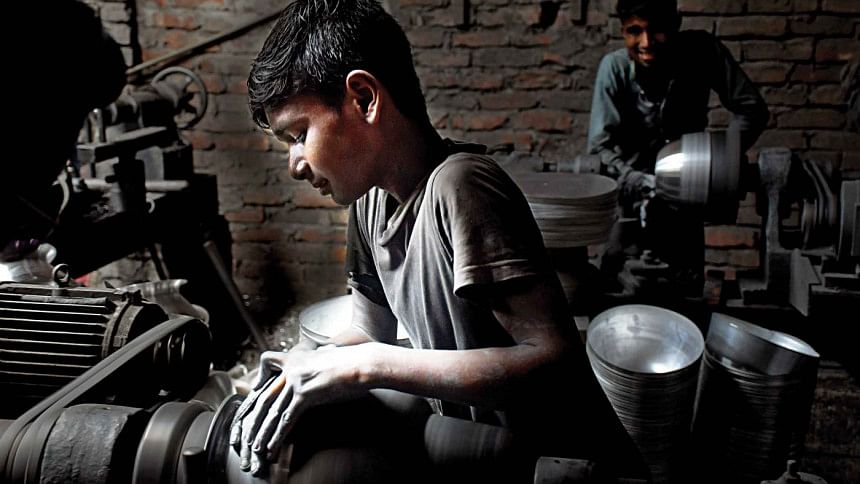Little to no progress in ending hazardous child labour

We are dismayed at the sluggard progress of a government project (taken up over three years ago) aimed at taking children out of hazardous labour by 2020. The Tk 284 crore project, named "Eradication of Hazardous Child Labour in Bangladesh (4th phase)", passed its deadline as 2020 ended at only 1.33 percent completion—according to a recent Implementation Monitoring and Evaluation Division (IMED) report.
Meanwhile, one of the most devastating effects of the pandemic has been the increase in child labour (in formal and informal sectors), as children joined the workforce to help provide for their struggling families. Prolonged school closures and lack of access to online education only gave way to this issue. A survey by Manusher Jonno Foundation (MJF) found that, of 30,313 children who were engaged in hazardous jobs in the first half of last year, about 7,800 had moved to even riskier jobs by September 2020. The study also found that child abuse in the workplace had increased by 137 percent due to this surge in child labour.
Had the project by the labour and employment ministry (with national-level NGOs concerned with child labour) been completed on time, around one lakh would have had "six months' non-formal education and four months' skills development training, and a monthly stipend of Tk 1,000". 10,000 of the trainees would have been provided Tk 15,000 as seed money, and the employment record of the one lakh children would have been tracked in a database.
While a new deadline of December 2021 has been set, we find the project officials' reasoning, that the pandemic is solely to blame for such a delay, a bit hard to believe. Towards the end of last year, many industries and businesses (public and private) had begun operating in a close to normal manner. So it is strange that a project meant to deal with the growing and urgent issue of increasing child labour in hazardous areas should have a near-static rate of progress. An initial list of 112 NGOs meant to work on the project is yet to be approved by the cabinet committee, according to the project director. The request for proposals (RFP) by the NGOs had arrived in June 2020.
We would urge the government and the labour and employment ministry specifically to avoid any further delays of this project. The issue of increasing child labour and resultant abuse requires urgent action. Children must somehow be sent back to schools, families must be made more aware about the long-term impacts of hazardous child labour. But most importantly, the government must be diligent in creating better options for these children and their families so that these children are not forced to take up jobs that risk their wellbeing.

 For all latest news, follow The Daily Star's Google News channel.
For all latest news, follow The Daily Star's Google News channel. 



Comments